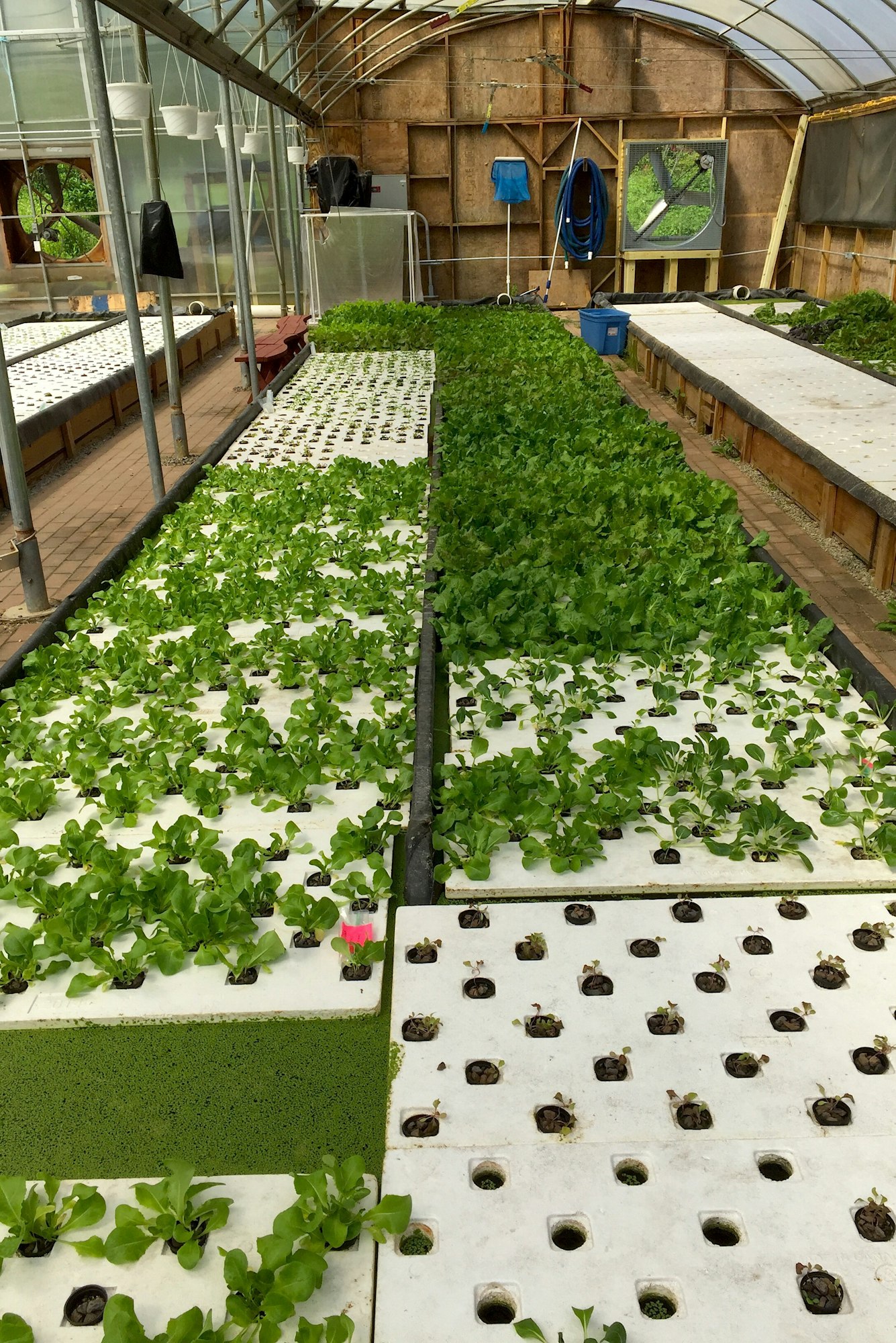As we navigate the 21st century, the need for sustainable and self-sufficient food production methods is more pressing than ever. With the global population set to reach 9.7 billion by 2050, according to the UN report, sustainable food production is no longer an option but a necessity. One solution that has been gaining traction is aquaponics, a combination of aquaculture (raising fish) and hydroponics (the soil-less growing of plants). Today, we explore the prospects of aquaponics systems in urban UK food production.
Introduction to Aquaponics
Aquaponics is a symbiotic system in which aquatic animals and plants grow together, each benefiting from the other. The waste produced by the fish provides valuable nutrients for the plants, which in turn purify the water for the fish. By eliminating the need for synthetic fertilisers and pesticides, aquaponics offers a sustainable solution for urban farming. It’s a fascinating concept that has been studied by scholars and experts worldwide.
Lire également : How Can Microgrids Contribute to Energy Security in Remote UK Communities?
Aquaponics has been heralded for its potential benefits in urban food production. In a world where every square foot of land counts, this system offers a means to cultivate food in compact spaces. Moreover, it’s a method that uses 90% less water than conventional farming, a significant consideration in our current era of increasing water scarcity.
The Current State of Aquaponics in the UK
In the UK, aquaponics systems are increasingly being adopted, albeit on a small scale. The market is in its infancy, with a few pioneering enterprises and community projects leading the way.
A découvrir également : How to Create a Dog-Friendly Urban Environment in the UK?
A quick Google search will show you several urban farms and community gardens that are exploring the potential of aquaponics. For example, GrowUp Urban Farms in London has been utilising this system to grow vegetables and farm fish in a controlled environment, significantly reducing the growth cycle and water usage.
Yet, while there is growing interest in aquaponics, the market is still in its early stages. There’s a need for further research, development, and investment to fully understand and harness the benefits of this system.
The Potential of Aquaponics in Urban UK Food Production
Aquaponics presents a compelling solution to several challenges facing urban UK food production. First and foremost, it allows for the local production of fresh, organic food. Given the increasing demand for locally sourced produce, this is a significant advantage.
By growing food in urban areas, aquaponics can help reduce the energy and resources used in transporting food from rural farms to urban markets. Furthermore, by recycling water, it reduces the strain on the already stretched water resources.
In a study conducted by the University of the West of England, it was found that a large-scale aquaponic system could produce enough fish and vegetables to feed 2,300 people per year, using only a small footprint of urban land. This is a staggering figure that highlights the potential of aquaponics in addressing the pressing issue of food security.
Challenges and Opportunities Facing Aquaponics in the UK
Despite its potential, aquaponics is not without its challenges. The initial setup cost can be high, and the system requires a certain level of expertise to manage effectively. Furthermore, the production of certain crops (such as grains and root vegetables) is currently not feasible in aquaponic systems.
However, the opportunities far outweigh these challenges. With increasing technological advancements, the cost of setting up and operating an aquaponic system is expected to decrease. Furthermore, there’s a growing body of research dedicated to improving the efficiency and productivity of these systems.
There is also a significant opportunity for job creation. As aquaponics becomes more widespread, there will be a need for skilled workers to manage these systems. This could lead to the creation of new, green jobs in urban areas.
The Future of Aquaponics in the UK
Aquaponics is more than just a trendy buzzword – it’s a movement towards a more sustainable, resilient, and efficient food system. The question is no longer if aquaponics will play a role in the future of UK agriculture, but how big that role will be.
The future is promising, with several initiatives already underway. For instance, the Aquaponics Association UK is working to promote the use of aquaponics and provide support to those interested in the system.
Moreover, with the UK government’s commitment to reaching net-zero greenhouse gas emissions by 2050, there’s potential for aquaponics to be part of this solution. By reducing the reliance on traditional farming, which is responsible for about 10% of the UK’s greenhouse gas emissions, aquaponics can contribute to this goal.
In conclusion, while aquaponics may not be the silver bullet for all the challenges facing the UK’s food production system, it certainly presents a promising opportunity. It’s an innovative, sustainable approach to farming that is well worth considering in the quest for a more sustainable and secure food system.
Aquaponics in Action: Case Studies in the UK
In order to fully appreciate the potential of aquaponics in the UK, it’s useful to look at some actual case studies. These real-world examples provide invaluable insights into the practical application of this system, its benefits, challenges, and overall impact on urban farming and food security.
One such case is the Rainbow Trout Aquaponics project in Wales. This setup uses rainbow trout, a popular fish species in the UK, and a variety of plant species, demonstrating the versatility of the system. The project, initially small scale, has expanded and has become a Google Scholar case study for aquaponics research, providing valuable data on plant growth and water quality.
Another example is Bioaqua Farm in Somerset, the largest aquaponic trout farm in Europe. They have gone beyond the traditional scope of aquaponics to pioneer a whole system approach known as "aquaponics plus". This method integrates free-range chickens into the system, utilising the chicken waste to supplement the nutrient-rich fish water and to increase the variety of plants that can be grown.
An urban agriculture initiative worth mentioning is GrowUp Urban Farms in London, as previously mentioned. This venture’s success is clear evidence of how aquaponics can be scaled up to meet the food production needs of a large city.
These case studies are just a few examples of how aquaponics is already making a significant impact in the UK. They provide a glimpse of what the future could hold if this system is widely adopted and optimised.
Abu Hashim and Alhaj Hamoud: Aquaponics Experts Weigh In
Understanding the future of aquaponics in the UK requires expert insights, and two such authorities are Dr. Abu Hashim and Professor Alhaj Hamoud.
Dr. Hashim, a leading researcher in water quality and aquaponics, believes that aquaponics is the future of sustainable food production. He sees the potential for the system to address not only food security but also climate change, by reducing the carbon footprint of agriculture. His studies in aquaponics have focused on optimising water quality to maximise fish health and plant growth.
On the other hand, Professor Hamoud, a global aquaponics pioneer, has been instrumental in promoting aquaponics in the UK. He is particularly optimistic about the job creation potential of this system. According to him, the expansion of aquaponics could lead to a new wave of green jobs, from system management to marketing and distribution of aquaponics food.
Both these experts agree on one thing: the future of aquaponics in the UK is bright. While there are challenges to overcome, the benefits far outweigh the obstacles.
In Conclusion: The Future of Aquaponics in the UK
In conclusion, the prospects of aquaponics systems in urban UK food production are promising. Aquaponics is already making its mark in the UK, as evidenced by the ongoing projects and successes of pioneers in the field. Its potential to address pressing issues such as food security, water scarcity, and climate change makes it a significant player in the future of sustainable agriculture.
The challenges are real, but with ongoing research, technological advancements, and the work of individuals like Dr. Abu Hashim and Professor Alhaj Hamoud, these can be overcome. As more people become aware of the benefits of such a system, the aquaponics market is set to grow.
Moreover, with the UK government’s commitment to net-zero greenhouse gas emissions by 2050, aquaponics could well be a key part of the solution. By reducing reliance on traditional farming and optimising resources, aquaponics can contribute significantly to this goal.
Ultimately, the successful implementation of aquaponics systems across the UK will depend on continued research, investment, training, and public support. Yet, with its many benefits and potential, aquaponics offers a beacon of hope for a future where sustainable, local, and secure food production is the norm.











